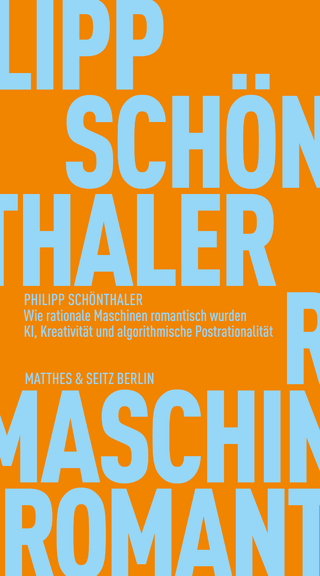
Linguistic Turns in Modern Philosophy
Seiten
2006
Cambridge University Press (Verlag)
978-0-521-65470-8 (ISBN)
Cambridge University Press (Verlag)
978-0-521-65470-8 (ISBN)
This book traces the linguistic turns in the history of modern philosophy and the development of the philosophy of language. Michael Losonsky shows how the history of the philosophy of language in the modern period is marked by an as yet unintegrated dichotomy between formal and pragmatic perspectives on language.
This book traces the linguistic turns in the history of modern philosophy and the development of the philosophy of language from Locke to Wittgenstein. It examines the contributions of canonical figures such as Leibniz, Mill, Frege, Russell, Wittgenstein, Austin, Quine, and Davidson, as well as those of Condillac, Humboldt, Chomsky, and Derrida. Michael Losonsky argues that the philosophy of language begins with Locke's Essay Concerning Human Understanding. He shows how the history of the philosophy of language in the modern period is marked by a dichotomy between formal and pragmatic perspectives on language and that modern philosophy has not been able to integrate these two aspects of human language. Language as a human activity and language as a syntactic and semantic system remain distinct and competing focal points, although the interplay between these points of view has driven the development of the philosophy of language.
This book traces the linguistic turns in the history of modern philosophy and the development of the philosophy of language from Locke to Wittgenstein. It examines the contributions of canonical figures such as Leibniz, Mill, Frege, Russell, Wittgenstein, Austin, Quine, and Davidson, as well as those of Condillac, Humboldt, Chomsky, and Derrida. Michael Losonsky argues that the philosophy of language begins with Locke's Essay Concerning Human Understanding. He shows how the history of the philosophy of language in the modern period is marked by a dichotomy between formal and pragmatic perspectives on language and that modern philosophy has not been able to integrate these two aspects of human language. Language as a human activity and language as a syntactic and semantic system remain distinct and competing focal points, although the interplay between these points of view has driven the development of the philosophy of language.
Michael Losonsky is Professor of Philosophy at Colorado State University. He is author of Enlightenment and Action from Descartes to Kant and co-author and co-editor, with H. Geirsson, of Beginning Metaphysics and Readings in Mind and Lanugage.
Preface; 1. Locke's linguistic turn; 2. The road to Locke; 3. Of Angels and human beings; 4. The form of a lanugage; 5. The importance of propositions; 6. The value of a function; 7. From silence to assent; 8. The whimsy of language.
| Erscheint lt. Verlag | 16.1.2006 |
|---|---|
| Reihe/Serie | The Evolution of Modern Philosophy |
| Zusatzinfo | Worked examples or Exercises |
| Verlagsort | Cambridge |
| Sprache | englisch |
| Maße | 152 x 229 mm |
| Gewicht | 401 g |
| Themenwelt | Geisteswissenschaften ► Philosophie ► Sprachphilosophie |
| ISBN-10 | 0-521-65470-X / 052165470X |
| ISBN-13 | 978-0-521-65470-8 / 9780521654708 |
| Zustand | Neuware |
| Haben Sie eine Frage zum Produkt? |
Mehr entdecken
aus dem Bereich
aus dem Bereich
Macht und Legitimität politischer Sprache im Prozess der europäischen …
Buch | Softcover (2023)
Nomos (Verlag)
CHF 103,60
KI, Kreativität und algorithmische Postrationalität
Buch | Softcover (2024)
Matthes & Seitz Berlin (Verlag)
CHF 23,90
Wie die Menschheit zu ihrer größten Erfindung kam
Buch | Softcover (2022)
C.H.Beck (Verlag)
CHF 25,20


